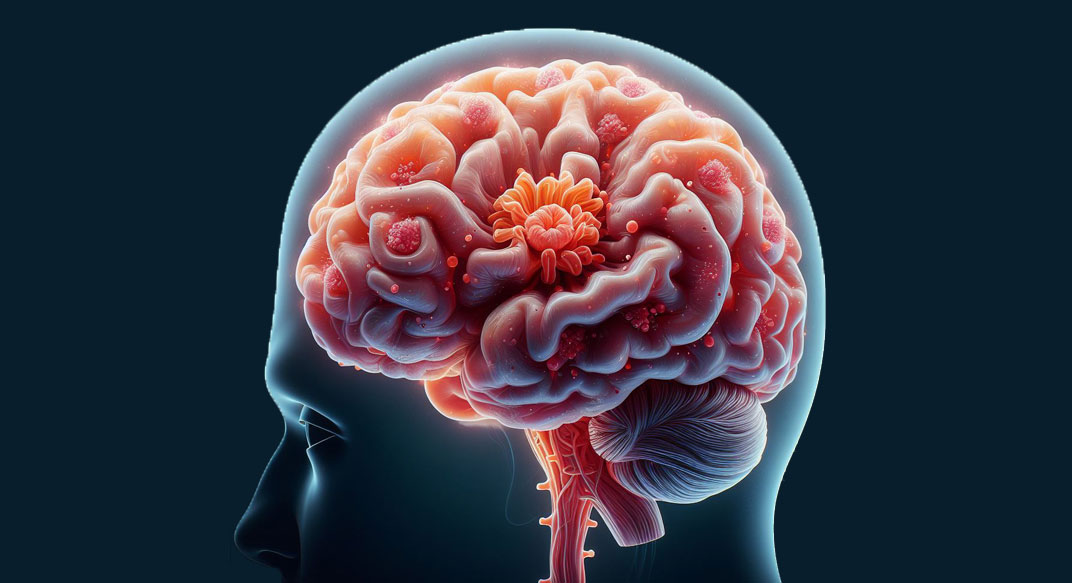Understanding of Hydrocephalus and Its Impact

The human brain, a marvel of intricate design, relies on a delicate balance of fluids to function optimally. However, certain conditions can disrupt this equilibrium, leading to challenges in neurological health. One such condition is hydrocephalus, a term that may sound complex but is crucial to comprehend. In this article, we will delve into the world of hydrocephalus, exploring its causes, symptoms, diagnosis, and available treatment options.
What is Hydrocephalus?
Hydrocephalus, often referred to as "water on the brain," is a condition characterized by an abnormal accumulation of cerebrospinal fluid (CSF) within the brain's ventricles. CSF is a clear fluid that surrounds and cushions the brain and spinal cord, providing essential nutrients and removing waste. When the normal flow and absorption of CSF are disrupted, it can result in an excess buildup, causing the ventricles to enlarge and exert pressure on the brain.
Causes of Hydrocephalus:
Hydrocephalus can be congenital (present at birth) or acquired later in life. The causes include:
Congenital Causes:
- Developmental abnormalities that block CSF pathways
- Genetic factors.
- Spina bifida or other neural tube defects.
Acquired Causes:
- Infections affecting the central nervous system, such as meningitis.
- Trauma, hemorrhage, or bleeding within the brain.
- Tumors blocking CSF flow.
- Certain medical conditions affecting CSF absorption.
Symptoms of Hydrocephalus:
The symptoms of hydrocephalus can vary depending on age and the underlying cause. Common signs include:
- Headaches.
- Nausea and vomiting.
- Difficulty walking or poor coordination.
- Enlarged head (in infants with open fontanelles).
Diagnosis of Hydrocephalus:
Diagnosing hydrocephalus involves a combination of medical history, physical examination, and imaging studies. Common diagnostic tools include:
CT (Computed Tomography) Scan: Provides detailed images of the brain, helping identify ventricular enlargement.
MRI (Magnetic Resonance Imaging): Offers a more comprehensive view of the brain's structures and can help determine the cause of hydrocephalus.
Treatment Options of Hydrocephalus:
Common approaches include:
Shunt Placement: A shunt is a flexible tube that diverts excess CSF from the brain to another part of the body, such as the abdominal cavity, where it can be absorbed.
Endoscopic Third Ventriculostomy (ETV): In some cases, a small opening is created in the floor of the third ventricle to allow CSF to flow directly.
While treatment can effectively manage hydrocephalus, individuals may require ongoing medical care and monitoring. Regular follow-ups with healthcare providers are essential to ensure optimal functioning and address any potential complications.
Hydrocephalus, though challenging, is a condition that can be effectively managed with timely diagnosis and appropriate treatment. Understanding its causes, symptoms, and available treatment options is crucial for individuals and their families facing this condition. Advances in medical science continue to improve the quality of life for those affected by hydrocephalus, offering hope for a brighter and more manageable future. If you suspect you or a loved one may be experiencing symptoms of hydrocephalus, seeking prompt medical attention is key to initiating the necessary steps toward diagnosis and treatment.
For personalized advice and consultation on any brain and spine-related concerns, it is strongly recommended to seek the expertise of a qualified medical professional. We encourage you to consult with Dr. Adarsh Patel, a best neurosurgeon in ahmedabad for their expertise in addressing various neurological and spinal conditions. Dr. Adarsh Patel possesses a wealth of experience and is committed to providing comprehensive and individualized care to patients. To schedule an appointment or seek further guidance, please contact Dr. Adarsh Patel directly Click Here. Your health is of utmost importance, and consulting with a specialist ensures that you receive accurate information tailored to your specific needs.
Disclaimer: The information provided in this article is for general informational purposes only and is not intended as, nor should it be considered, a substitute for professional medical advice. Do not use the information on this website for diagnosing or treating any medical or health condition. If you have or suspect you have a medical problem, promptly contact your professional healthcare provider.
